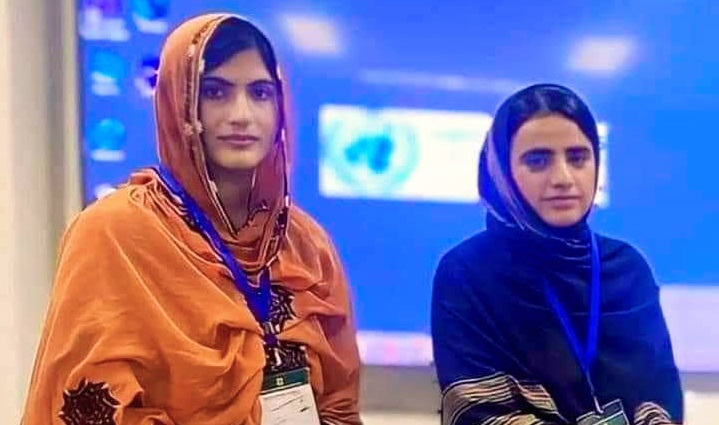Indian State Should Focus on Unconventional Methods: Jamal Nasir Baloch
After the Travel Ban Dr Mahrang Booked for Incitement Against the State

Karachi, Pakistan – On October 7, Dr. Mahrang Baloch, a prominent Baloch leader and central organizer of the Baloch Yakjehti Committee, was prevented from travelling to New York for a prestigious award ceremony hosted by TIME Magazine.
Dr. Baloch was invited as one of the most influential emerging leaders of 2024 for her dedicated advocacy for Baloch rights.
In a press conference at the Karachi Press Club, Dr. Baloch recounted the disturbing events that unfolded at the airport. She revealed that officials from the Federal Investigation Agency (FIA) confiscated her passport and denied her access to her scheduled flight without providing any legal justification for the travel ban, despite her holding a valid visa.
The situation escalated after Dr. Baloch and fellow activist Sammi Baloch—also a prominent voice for Baloch rights and a Frontline Defenders Laureate—were subjected to further harassment. As they left the airport, their vehicle was forcibly stopped by police and intelligence personnel.
The law enforcement agents not only confiscated their belongings, including Dr. Baloch’s passport and phone, but also verbally abused them, physically assaulted their driver, and left them stranded on the highway in the middle of the night.
Dr. Baloch’s situation mirrors that of another Baloch activist, Sammi Deen Baloch, who was also barred from travelling. Last month, Sammi was stopped from flying to Oman and is currently embroiled in a legal battle against her travel ban. Despite attending four court hearings, no government officials have appeared, even after being summoned.
On October 10, a fabricated FIR was registered against Dr. Mahrang Baloch at the Quaidabad police station in Karachi, alleging her involvement in facilitating banned militant outfits, disturbing public order, and inciting youth against the state.
The FIR invoked multiple serious charges, including Section 7 (punishment for acts of terrorism) of the Anti-Terrorism Act (ATA) 1997, as well as Sections 124-A (sedition law), 148 (rioting armed with deadly weapon), 149 (guilt of every member of unlawful assembly for offences committed in prosecution of common object), 153-A (promotion of enmity between groups), 500 (punishment for defamation), and 505 (statements conducing to public mischief) of the Pakistan Penal Code.
Dr. Baloch expressed her outrage at the treatment they received and emphasised that the actions of the state reveal a broader disregard for the fundamental rights of the Baloch nation, asserting that such brutality would only strengthen their resolve to resist the ongoing Baloch genocide.
Reacting to the registration of FIR against her in a recent post on X, Dr. Baloch wrote:
A new fabricated police case against me in Karachi shows how the state has grown increasingly uncomfortable with my peaceful activism, especially after recognition by TIME Magazine. My peaceful activism will not be deterred by such illegal, unconstitutional, and coercive tactics. These measures are part of a systematic campaign not only to harass me but also to divert attention from the ongoing failure of security agencies to maintain law and order, therefore they keep shifting blame for their failures onto others. My Baloch nation, these FIRs aim to threaten our collective struggle. However, I remain determined and unafraid of these coercive actions, with my nation standing like a mountain behind me. I will fight this in a court of law.
Dr Mahrang Baloch and Sammi Deen’s experience highlight the increasing repression faced by Baloch activists and the urgent need for international attention to the human rights situation in Balochistan.
She vowed to fight this legal battle in a ‘court of law’ and overcome all the hurdles and deterrence trying to distract her from her peaceful activism.









